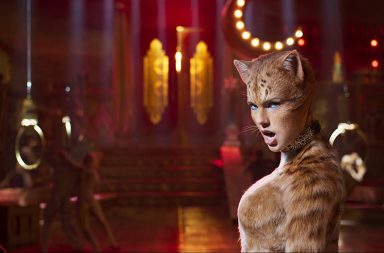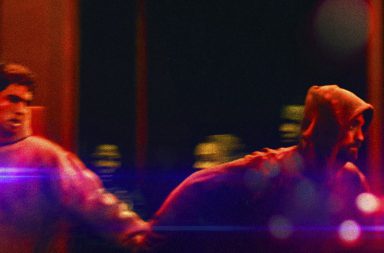The Big Short is one surprising film. First, of all, who’d have thought that Anchorman director would create such a cynical dramedy. Second of all, what’s up with everyone’s hair? I mean, Ryan’s, Steve’s, Brad’s… All awful. I don’t remember the mid-noughties being such a catastrophic era for haircuts. Anyway, enough about that and more about the best surprise of all, the score. Composer Nicholas Britell writes an eclectic, funny and intelligent score that harmonizes with the meta mise en scene and the pop-culture infused montage.
Otherwise known as “the subprime mortgage crisis for dummies”, the film is indeed didactic. However, honestly speaking, I found myself getting lost in the maze of acronyms, numbers and percentages very early on in the film.
Yet, thankfully, Britell’s score accentuate the dark humour and cynicism of the film and effortlessly ties it all together. I am thinking of the funky tune “Lewis Ranieri” or the ominous “Does It Make You Bored?”
 (Source: twitter.com/NicholasBritell)
(Source: twitter.com/NicholasBritell)
Having previously worked on 12 Years a Slave, produced by Plan B, the same production company as Adam McKay’s film, Britell arrived quite early on The Big Short. The composer really enjoyed the script he was given so he wrote a few tracks that he then sent to McKay. They’d kept in contact throughout the shooting, and during the editing phase, Britell flew to L.A. and ended up in an office close by Mckay and editor Hank Corwins’ cutting room. The director said: “I was usually in there with Hank. Nicholas would pop into Hank’s room and plug his keyboard into the Avid. Hank would play with the cutting while Nick would play with scoring. Watching it happening in real time was so exciting!” The proximity enabled a really quick creative process which McKay hopes to replicate with Corwin and Britell on a future film.
The director and the composer stayed in touch during the shoot and Britell flew to L.A. during the editing phase and ended up staying in an office close to the cutting room where McKay and editor Hank Corwin were working. The director says: “I was usually in with Hank. Nicholas could pop into Hank’s room and plug his keyboard into the Avid. Hank would play with a cut, while Nick would play with scoring. Watching it in actual time was so exciting!” The proximity enabled a reactive and quick creative process, which McKay hopes to replicate with Corwin and Britell on a future film.
In a Music Times interview, Britell explains how his music follows the narrative arc of the film. During the first half or two thirds through the film, the anti-heroes are really onto something because they’ve noticed anomalies in the banking system and suspect that the market will soon collapse. “[T]here’s definitely a feeling of upbeat energy and excitement, you know because it’s really an intellectual detective story in a way.” The mood starts to turn with the Las Vegas scenes, when the catastrophe is bound to happen: “We used six pianos, all layered together; all these pianos felt stable and unstable at the same time — which seemed like the markets themselves.” The most original track probably is the “Mouseclick Symphony Mvmt 1” created, as indicated by its name, from mouse clicks and computer beeps which is reminiscent of Dario Marianelly’s “Briony” from the Atonement soundtrack. In case you haven’t watched it, Marianelly uses typewriters because the action takes place during WWII.
Funnily enough, when former hip-hop group member and classically trained Britell was younger, he traded on Wall Street on the side of composing music for short films. This CV asset came in handy when Britell and McKay started to discuss the sound of finance, trade and dark maths.
Marine Wong Kwok Chuen



